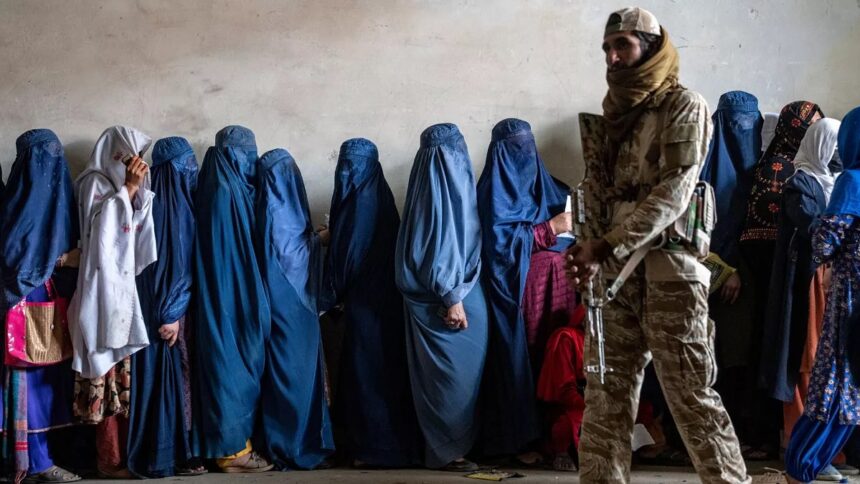RASC News Agency: Former British Prime Minister Gordon Brown has emphasized that the Taliban’s “systematic violation” of Afghanistani women’s and girls’ rights is a matter of “life and death.” In an article published by British media outlets, Brown expressed deep concern over the increasing psychological distress, depression, and suicide rates among Afghanistani girls due to these violations. He highlighted that maternal and young women’s mortality rates during childbirth appear to have increased by at least 50% since the Taliban’s return to power.
Brown criticized the global community for failing to sufficiently mobilize to compel the Taliban to alter its policies, stating, “While the recent United Nations meeting in Qatar succeeded in bringing the Taliban to the negotiating table, the rights of girls have yet to become a priority in discussions about Afghanistan’s reintegration into the international community.” The former Prime Minister further expressed his alarm over the consequences of denying education to Afghanistani girls and women, noting that one tragic result of this deprivation is the surge in forced marriages.
While the United Nations recently reported a 25% increase in child marriages under Taliban rule, Brown identified the lack of education as a key driver behind the rise in early marriages. He cited the recent arrival of 19 Afghanistani female students in Scotland, where they will continue their medical studies, as evidence that there is no justification for denying education to Afghanistani girls. In his article, Brown remarked, “This week, 19 Afghanistani girls arrived in Scotland to begin their medical education and pursue careers as doctors. This opportunity was made possible through the support of the Linda Norgrove Foundation, based in the Western Isles. These young women, who were effectively under house arrest in Afghanistan, could not leave their homes without male accompaniment.”
Brown also called on the international community to impose additional sanctions on the Taliban to force the “group” to change its policies. His criticism comes at a time when the British government, after the United States, remains the second-largest financial contributor to the Taliban regime.






